
Parce Rum 12-Year Aged
Rum
Behind the Brand
Co-Founder & President at KOVAL Distillery
Standing at a crossroads in life is always a daunting prospect. Adding in starting a new business, moving across the country, and bringing a new life into the world can easily be a mixture that would make most people quit. Thankfully, Sonat Birnecker-Hart, Co-Founder and President at KOVAL Distillery, didn’t let a few major life changes stop her from founding one of the most celebrated distilleries in the world. We sat down with Sonat to hear more about how KOVAL started, the inspiration behind the iconic brand, and what it means to become a leader in the industry.
I came into this industry because my husband and I were at a crossroads in our lives. I was pregnant with my first child, we were house hunting, and it was right before the crash in 2008. We were living in D.C., but I realized that my parents were getting older, and they were far away. All of these things were happening at the same time. And during our house hunting in D.C., none of the homes in our price category were really all that great. One had a moldy basement. And after we'd gone through a few of those moments, we started thinking maybe we did not really want to settle down there. Maybe this was a sign. And maybe we needed to reevaluate what was most important to us at this juncture in our lives.
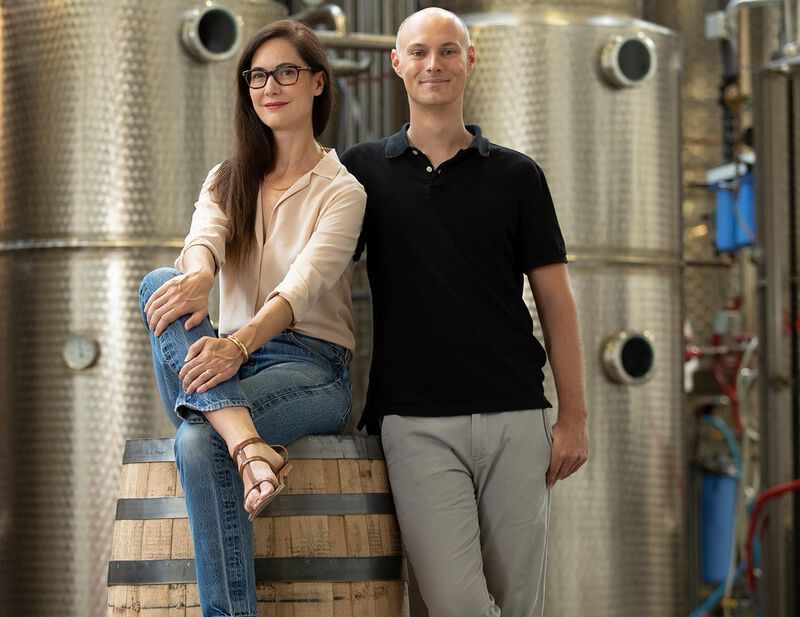
Now, I was a tenured professor; Robert was the Deputy Press Secretary for the Austrian embassy. We had pretty well-established careers. But, you know, sometimes it's nice to take stock of what matters most to you and then reevaluate from there. So we decided we wanted to be close to family, particularly as my parents were getting older. We wanted to live in a city we absolutely loved and adored, which is luckily Chicago for me. I mean, it was always Chicago for me, but my husband also really adores Chicago. So I was lucky in that he wanted to live in the same city I love.
And we also liked the idea of working together. If we were going to reevaluate everything, we also saw ourselves as a good team; we have very different strengths, and we appreciate each other's strengths and trust each other to work hard and do a good job. So we thought maybe it would be a good idea to make all those things happen. Instead of buying a home, we moved in with my parents in Chicago. We took what was going to be a down payment on our home and purchased a still. We did a lot of things that I certainly wouldn't recommend for entrepreneurs, things like using our credit cards to their limit, transferring them over to another credit card, and running up more and more debt. But, it was 0% financing for a year; and certainly motivating because at the end of that year, boom! It blew up to 26% interest, something in line with what happened with real estate in 2008.
It was an experience all about trying to find out what's most important in life – life is short; then trying to make sure that we bring our business and ideal situation into existence before it's too late and we're so rooted in a place that wouldn't make it possible. So that's how it was. Alcohol is a solution, and whiskey was our solution to being in the city we love, close to family, and working together.
Robert actually comes from three generations of distillers in Austria. They are farmer distillers, and they've been doing this for generations. And so he grew up distilling and also making Austrian cider called, “Most,” which is mostly made from pears. Making these things were part of his chores growing up, and because of this, he already had a very strong foundation.
When it came to figuring out what we would do together as a business, we started to think, “Okay, well, I am an expert in the coffeehouse society of Vienna from the turn of the century until 1938. So I suppose we could open a Viennese coffee house, but actually, there already was a Viennese coffee house in Chicago by Julius Meinl. It's a famous artisan coffee maker in Vienna.” So we thought, “okay, that's out.”
And then we started thinking about what else was possible. We would always bring back Robert’s grandfather's spirits for the holidays, and we would enjoy them with family. I remember my sister saying, “Wow, you guys should do this; this brandy tastes so great!” So we started thinking about it, and the idea started to take root. It seemed at the time that if someone were to say, “Why don't you start a distillery?” it almost sounded like someone saying, “Why don’t you start a pharmaceutical company?” It's just so out there and doesn't seem like something that one just does. But after we started looking into it and saw a few examples of it happening, we thought, “Okay, well, we actually have the knowledge, we have the family background in this. We want to do something together. And that this seemed like the perfect way to change our lives and start a new path.”
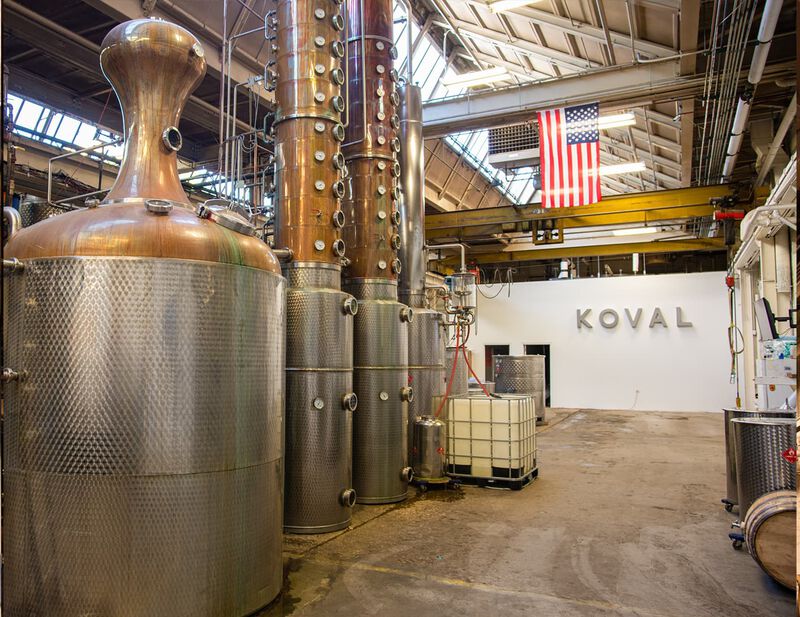
Yes — what brought us a lot more encouragement for creating the business was when we decided that we would start a distillery, I wrote letters to all the Aldermen in Chicago that were in areas of the city where there was a good mixture of residential, commercial, and industrial spaces, which Chicago used to actually have everywhere. But obviously, over the years, the industrial corridors have changed, and many great old factories have been converted to creative loft office spaces or residential, making it difficult to find such a range of zoning. We wanted to find an area that would work and have a good mixture of light industrial and other zoning, so we would not have to be too far from foot traffic or near public transportation. So two of the Aldermen in such areas wrote me back. One of them called me really quickly, and he said, “You know, I love what you want to do. This is what we need in Chicago. When you come to the city to look for a place, I've got a guy, and I want to help you.” The Alderman was Gene Schulter, who was in the 47th Ward, which is where we ended up being. And he did have a guy, and his guy had a great place.
When we went to look at the space, we were very nervous, it looked a little too big, and we didn't think we could afford it. So we asked him if he could sort of cut it down the middle, and we would take half of it. And he was just very kind and said, “You know what, just take it all. I'll lower the price and just have it all.” And so we just received so much encouragement; it really was wind in our sails, you know, whether it was from the aldermen or from our landlord or from the City of Chicago. They were very supportive of our efforts.
And we needed that kind of support because we were the first distillery in Chicago since the mid-1800s. There hadn't been any changes to the laws since the end of prohibition. In fact, I had to work to get the laws changed to make it possible for distilleries in Illinois to allow for tours, tastings, and retail on site. There wasn't anything on the books that made it easy for someone to have a craft distillery. We were really starting from scratch, and it was nice to have so much support and encouragement, on a number of levels, when we were getting started.
As with so much of our inspiration, KOVAL comes from family. Although the name is not a family name. Let me back up a tad; when we were going to start KOVAL, we didn't have a name yet. When we were leaving the D.C. area, we were trying to visit my great uncle Sigmund, who was in his very late 90s. At the time, he was a professor of musicology at Brooklyn College, and he was from Vienna. He would always greet us at the door with a little bow tie, a twinkle in his eye, and a cocktail. We thought it would probably be our last visit to see him because we were having a young child, starting a business, and moving far away. I didn't know how often I would be able to get back to New York to see him.
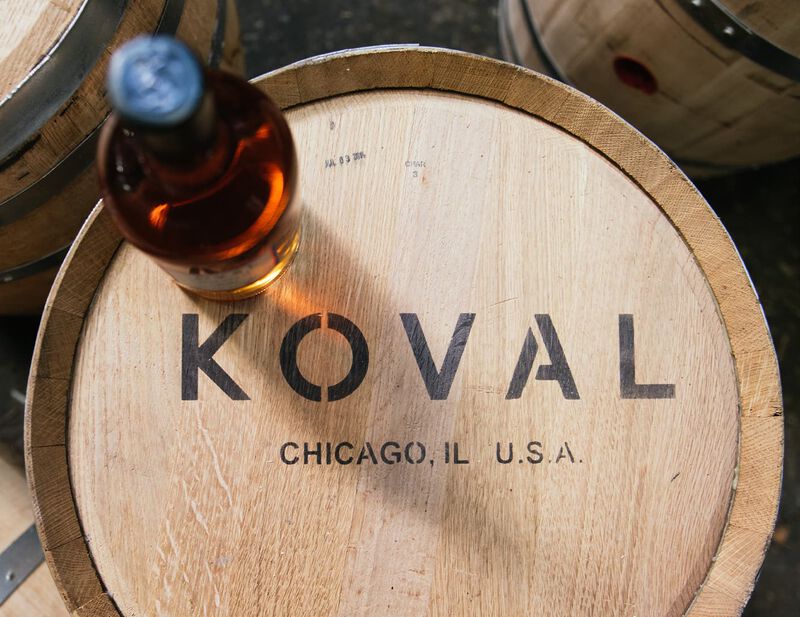
So, we're having a fabulous day and a good conversation. And we were talking about us starting the business and how many people were saying, “How could you do this? How could you give up the security of health insurance and benefits and go start your own business in the middle of a terrible recession?” And he said, “You know, that reminds me of your great-grandfather.” I said, “Really well, why?” And he said, “Well, your great-grandfather also did something that everyone thought was a little crazy.” And he started sharing how my great-grandfather walked down the stairs in Vienna one day at the turn of the century and basically said, “You know, Mom, I'm going to America and starting a company there.”
And they thought he was a little bit out there for doing that because Vienna was a great place to be at the turn of the century, especially if you were a Jew. So he went to Chicago, and he started a battery company. In doing all of this, the family gave him the nickname “Koval,” which in many Eastern European languages means Smith. But in Yiddish, Koval also had a little extra meaning, which was somebody who, like a blacksmith, forges something new out of something hard. And so he got that as a nickname, which is why he had as his ex libris “a blacksmith,” which I never understood because I knew he was an electrical engineer. When Sigmund told this to us, we thought that it was really interesting; but, it was especially interesting because Robert learned how to distill from his grandfather, whose last name is Schmid, which also translates as blacksmith in German. So it sort of brought both sides of the family together, which is really amazing.
But you know, the story goes even a little step further. Because when we were looking to find a larger factory, when we outgrew our original one, we were looking everywhere, everywhere. And we finally found one, but again, we were in this situation where we were like, “Oh, God, it's so big. I don't think we can handle it. Can we afford it? This is such a big throw.” It was just this big, gigantic warehouse, actually only about five blocks away from our original facility on the same street. But, when we went to view it, there was nothing in the warehouse except for a battery charger. And it was by my great-grandfather's company, the KW battery company. When I saw it, I felt it was sort of a sign. I asked the landlord, “If we rent this, can we buy this battery charger from you?” And he said, “The old residents, they just left it here. You can keep it; you can have it if you rent it.” So I knew we had to rent this facility. And this is the amazing thing — it still worked, even though the company has not existed since the 70s. We use it to charge our forklift. We're talking about a vintage battery charger, but it still works.
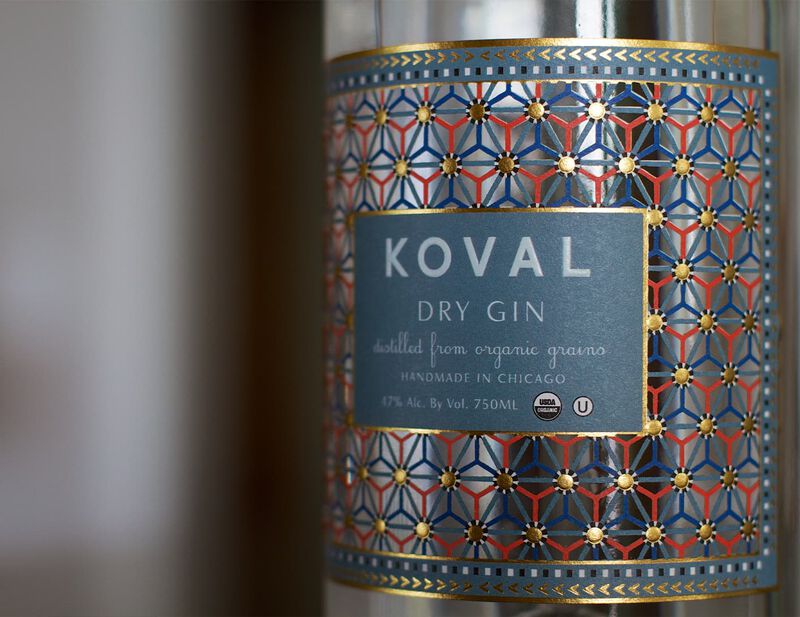
Again, family! I am very lucky to have a sister with a design company. She's been in fashion for decades; she has worked for some of the largest fashion brands out there. She kept telling us when we first started, “You really need to get a more professional label.” Robert and I had made the label ourselves. It's like, you're an entrepreneur, you're scrappy, you're trying to do what you can; we made it in something like a Word document. Finally, she convinced us. So we went to a firm that did liquor labels, and we received something that really was not gonna work for us.
She was sort of embarrassed and upset that she'd sort of pushed us to do this and spend all this money, and it didn't work out for us. She said, “You know what, I'm just gonna design it for you.” And so this was her first sort of foray from fashion into liquor. She did our whiskey design; she made it very clean and simple, and we loved it. We then gave her free reign to do our gin. We really respect the creative process. I can't even draw; I probably couldn't even draw a proper smiley face if you asked me to.
She got every last artistic gene in our family; both of my parents are artists, and she just got it all. So she designed the gin label, and it was one of the first labels to have laser cutting in such a form. It's a paper label, but it's also embossed and foiled, which was a really difficult process to achieve. We were very, very excited; we really loved it. And in fact, it's won design awards on both sides of the Atlantic. It was even in a Design Museum in Italy. It's been well received. We were really happy that she was able to do it and just very lucky to have such a creative family.
First, I would say for any woman trying to break into any industry that there are difficulties, there are many challenges that still remain. One will be faced with some forms of sexism; we haven't eradicated it yet. But, I think that what's important is to find male allies and to have the tough conversations. Discuss these things when they come up because I think that, through these discussions, one can open the eyes to people that might not have seen the aggression or the sexism to begin with. Sometimes it's kind of veiled in a way. And it may relate to something as simple as a weird look when a woman has to excuse herself to go pump when she's nursing or to go get a child from daycare.
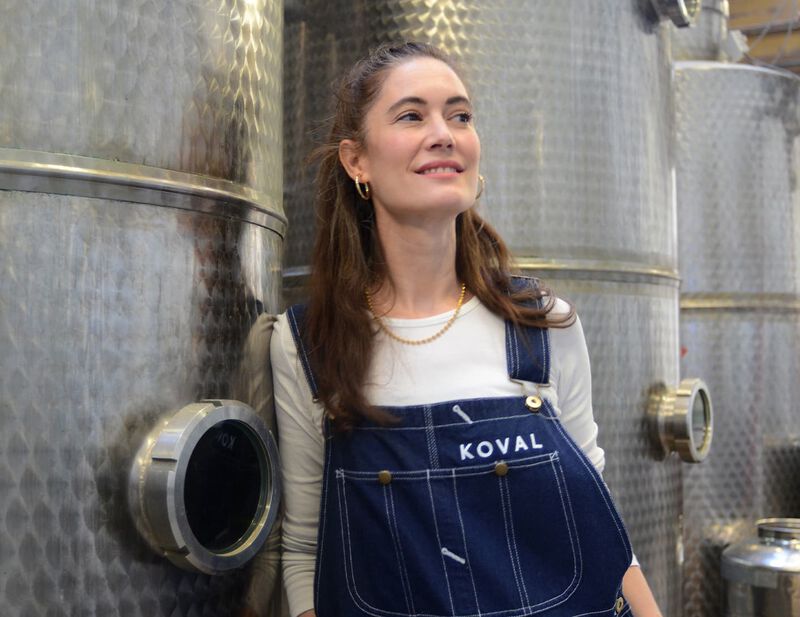
But, in addition to that, when men empower women, it also empowers them to be able to be there for their families if they need to. It also empowers them to have different leadership styles and empowers them to create an environment that is going to be better for both their daughters and their sons. So I feel that having the conversations and finding the allies that understand the value of women in this industry, or in any industry, is incredibly important for all of us.
To the liquor industry, I will say, as a historian, women have been here forever. I mean, this is not as if we are entering into foreign territory here or a completely new industry that women have been closed out of for centuries. That's not the case; women have always been a part of making alcohol, whether it's brewing or even distilling. And in fact, it was a woman called Maria the Jewess, a Jewish woman in ancient Egypt, who created the first still. We're talking origin story here with the level of women's involvement in the industry. So I am very inspired and encouraged by that.
But I also would say that this industry is full of really successful, amazing women on every single level. I think that for women coming into this industry: if they're looking for inspiration, if they're looking for mentors, they are definitely out there, whether it is the leaders and owners of distribution companies, to blenders to distillers to top salespeople, marketers, and writers. I see women everywhere in the spirits world. I think that this is a great time to be a woman in this industry; it's an industry we've been in since its inception. And I see women supporting other women in it all the time. I think that it's exciting. So my advice is: this is your industry, so do your best, make your mark, and find allyship and enjoy. We're in a celebratory business. We are in the business of good times and celebrations, and community. And I think that it's a good one to be in.
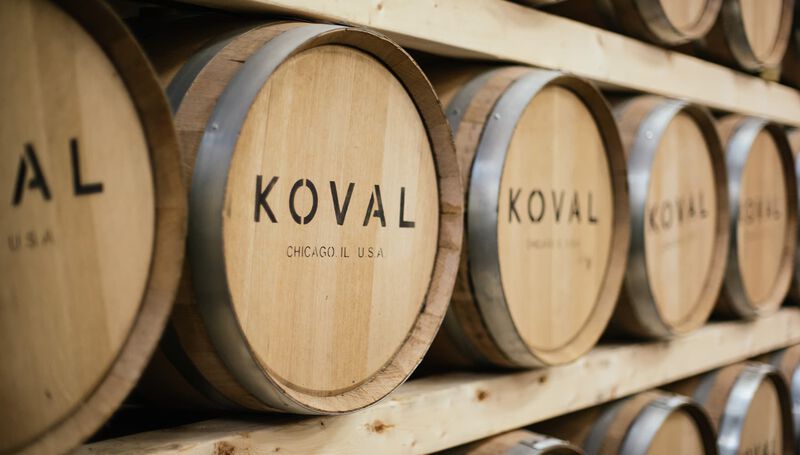
I feel that life has many chapters. You should never throw anything away, either. Education was very important to us. And it sort of happened a little bit organically, just because we like to teach and share knowledge, especially about things we're passionate about. When we were starting, if somebody called the distillery, they got my cell phone. I would be on the phone, but I would also probably be trying to do something in the distillery. And I definitely had a baby attached to me at the time. And so I'd be doing one thing and have the phone pressed between my ear and shoulder.
The call would often be somebody who would say something to the effect of, “I read an article about you in the paper and what you're doing. And we've been making alcohol in our backyard for years.” Believe me, all of a sudden, there were so many bootleggers coming out of the woodwork. I mean, I couldn't believe there were so many people distilling in their backyard. And so I would say, “Don't say that very loudly; it's a Federal offense.” And then they would say, “Well, we really want to figure out how we can do this for real and get the proper equipment and get licensed.”
I started talking to them. And these were very long conversations because it's not easy. There's a lot to think about. Anytime somebody would call, it would end up being like almost an hour and a half on the phone. The kind of phone conversation where your ears are sore and hot afterward. It got to the point where, after we started fielding many of these calls a week, we said, “Okay, you know what? Come to our workshop.” So then we started to have workshops.
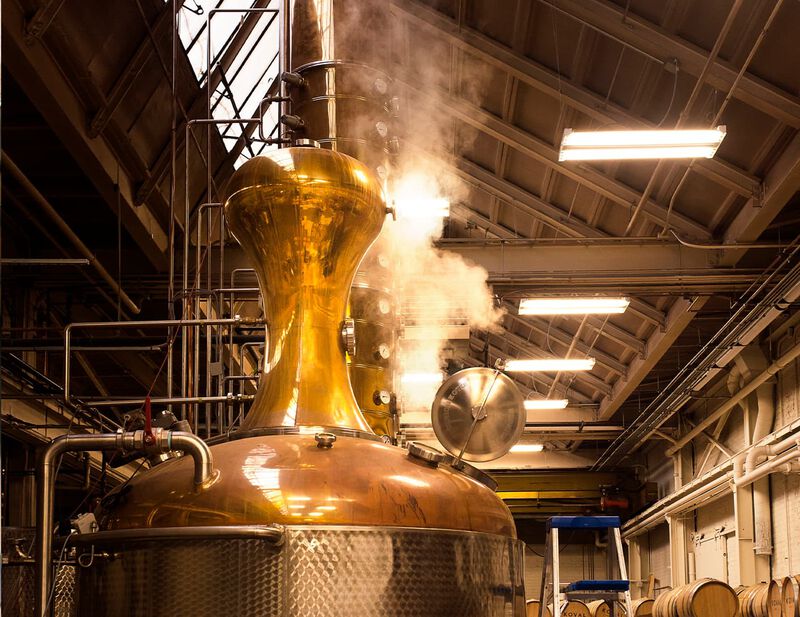
We also invited the manufacturers and representatives of the companies that we used for our own distillery. One of the ways we were starting to try and get a discount on really great equipment was to offer them some added value. We translated their websites from German to English because we're fluent in German. We offered to represent them; we established these really good relationships. So we found ways to add value to our business by adding value to other people's businesses, essentially creating vertical business models that are integrated. And in doing so, we learned so much and created so many wonderful contacts. We were able to then have a consulting company — Kothe Distilling Technologies — that could offer full services, whether it was turnkey operations to getting a distillery up and running, creating a product, to educating people on how to make different products. We did research and development for various individuals, all sorts of things.
We've had adventures through our consulting. We've done so many things that are beyond the scope of what we do at KOVAL. It's been fabulous. I mean, at this time, we've educated over 3,500 people from all over the world. They've come to our workshops at KOVAL through Kothe Distilling Technologies. We've had people from Africa, Australia, New Zealand, all over Europe, the Middle East, and the Caribbean Islands. We've helped set up over 200 distilleries for other people. We have set up the first distillery in Jerusalem, the largest distillery in Uganda, to distilleries in Finland, Australia, across the USA, and more. We've set up one in Japan for a very popular brewery, Hitachino Nest Beer; and they have aged some of their beers in KOVAL whiskey barrels, which was really fun to experience when we were there.
We've created wonderful relationships in the process. So it's been a really fabulous adventure and allowed us to really become more entrenched in an industry that we love while helping other people achieve their dreams and goals. It's been really rewarding.
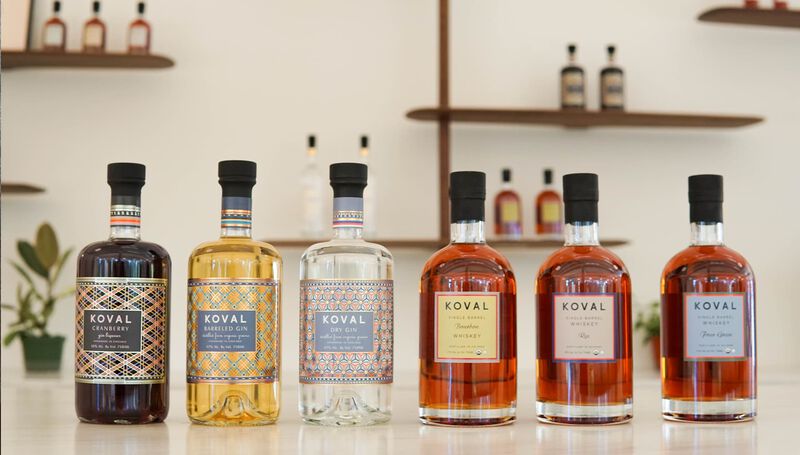
When they try our whiskeys, they'll notice that they're a little different than a lot of classic American whiskies on the market. That's because of our process and using only the heart cut of the distillate, which is sort of the filet of the distillate. We do not use any tails. This is applying a brandy approach to making whiskey. When you're making brandy in Europe, and this is what Robert’s family has done for generations, you would only use the heart cut because you wouldn't actually age it. So you want to make sure it's just really bright and clean as it is.
That's what we do with grains, and consequently, that's what we do with our whiskies. So they're going to be very clean and bright, grain forward whiskeys. Actually, they’re similar to Japanese whiskies, I'd say, for two reasons — one, because they tend to favor that style a little bit. But two, we also use an enzymatic approach to fermentation and mashing, which means we do not use malted barley to convert starches to sugars, which is very classic for American whiskies. So ours is very clean in that using these organic enzymes allows us to have a grain that is only 100%, whatever the grain is without malted barley added to the mash.
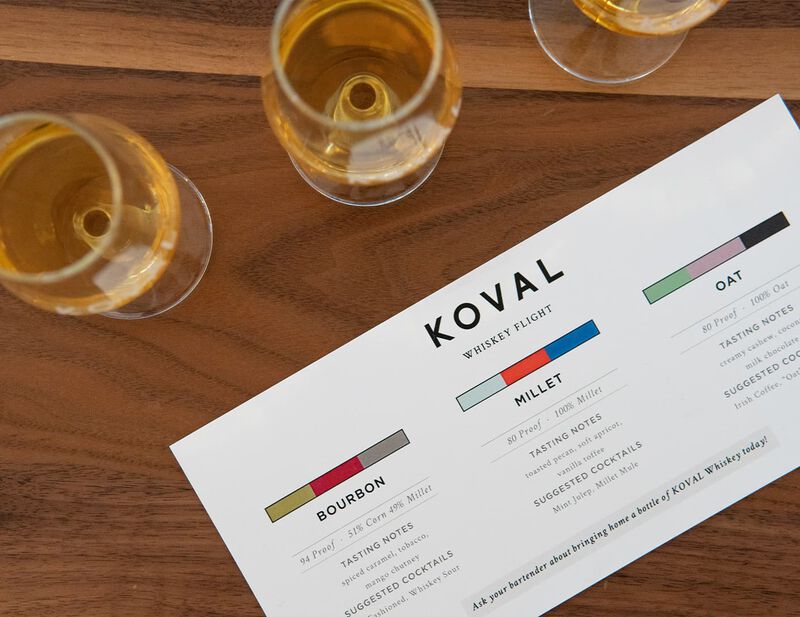
So if someone is coming down to the table to taste our rye for the first time, I think it's really neat to know that it's actually 100% rye; no malted barley, no other grains. There are many ryes on the market that are only 51% rye. With ours, one is going to taste what rye tastes like in its purest sense. I think that that's something to think about when tasting the products. Our process lends character to the way that the distillate will taste after it's aged and ends up in a glass.
With that said, I recommend trying our products as single expressions first, so you can see what each grain tastes like. And then move to the more complex expressions that we have, like our bourbon. The mash bill for our Bourbon is 51% Corn and 49% Millet, which is really unique when it comes to bourbon. We're not using any of the usual suspects for grains aside from corn, which is a requirement for bourbon. Trying a bourbon with millet in it is going to push the envelope a little bit.
We want to do things that are unique and different, that offer a surprise or excitement to various categories that are out there. We want to present something new. Our Four Grain whiskey is another fun one in that it includes a unique mixed mash bill of malted barley oat, rye, and wheat, and it comes in at 47% alc by volume. It's very complex and full of flavor, appealing to those who like a single malt but also enjoy American whiskey. All of our different whiskeys bring something fun and interesting to the marketplace, and we hope people enjoy them, sip them, and then try them in different ways, such as in classic cocktails. I know I love our Bourbon in an Old Fashioned, and our Rye makes a perfect Manhattan.
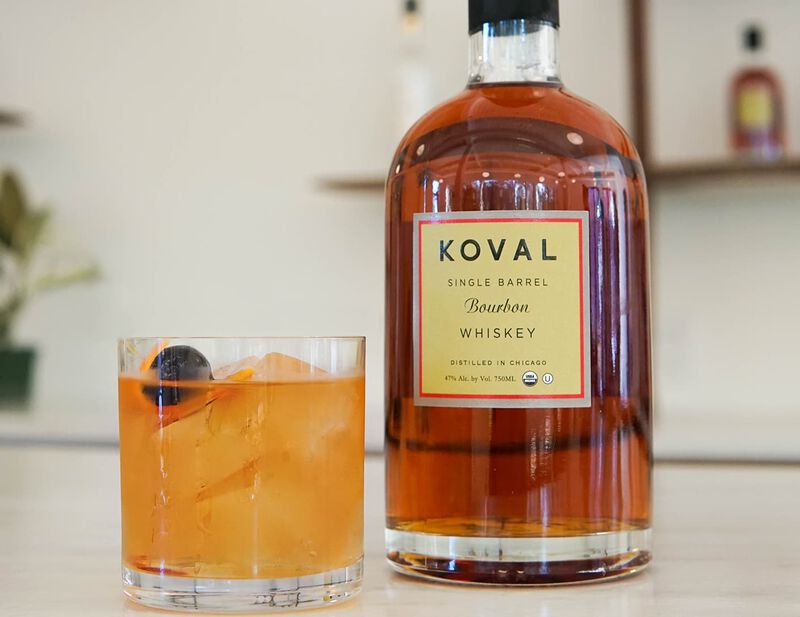
A lot of it depends on my mood. I feel like cocktails really depend on the moment — just like perfume or an outfit. Fashion does that to you; I remember the dress I wore when I first kissed my husband. So I feel that sometimes I like to drink things that remind me of past beautiful moments and celebrations. That might be a Sazerac, which really reminds me of the cocktails that Robert and I would drink as we were starting our business.
It was really early days, and we couldn't have possibly imagined that we would have national distribution and sell to 55 export markets around the world. Those were the dreams we talked about while drinking a Sazerac. But then, I will say I love a Negroni–frozen, on ice, or sitting pretty in a small glass. I feel that drink is perfect for general fun, a night out with friends type of cocktail. A Manhattan, and a classic Old Fashioned, are wonderful ways to enjoy our whiskey, though, for any occasion.
We've talked about other things that are important as a woman in business. But, I would also say that I feel that it's important, as a business that is engaged so much with the agricultural world, that we are organic, and we also are working with farmers who are close to the distillery. In fact, one of our main farmers is very, very close by. Since we've been in this industry for a while, we've seen the craft industry grow from under 30 distilleries in the United States to over 4000. We've also seen an increase in interest in organic grains for distilled spirits. When we started, it was difficult to source organic, and we were getting grains that were being sourced by bakeries. Now we've seen farmers we work with have to add more organic fields because of us, which is a costly and difficult process. It's really worth giving them the credit where it's due because it's not easy: it takes three years, and while they're converting a field, they can't call the grain grown on it organic.
To make these kinds of steps for our environment is really important. I'm really proud that we've been able to support sustainable agriculture and organic farming and promote it as well. The farmers that we're working with are being careful with their land. They're also using other grains that we employ, such as millet, which is actually a rotation crop. So it's regenerative. We're certainly in an industry that's all about joy and happiness, and I feel that it tastes a little better when the grains come from a sustainable and organic farm. As a closing thought, it's always nice to think about how we can make the world a better place, and that is something to drink to!